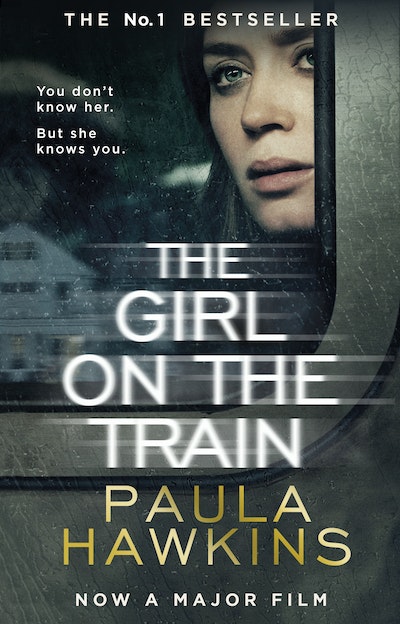Paula Hawkins’ The Girl on the Train: a thrilling reading group selection.
Trust, truth, memory, secrets, voyeurism, motherhood and the judgements we make are all explored in Paula Hawkins’ The Girl on the Train. It can be confronting subject matter for many of us – this is why it makes an inspired book club selection. Take a look at our reading group questions below and get the conversation started.
Book summary
Rachel catches the same commuter train every morning. She knows it will wait at the same signal each time, overlooking a row of back gardens. She’s even started to feel like she knows the people who live in one of the houses. ‘Jess and Jason’, she calls them. Their life – as she sees it – is perfect. If only Rachel could be that happy.
And then she sees something shocking. It’s only a minute until the train moves on, but it’s enough.
Now everything’s changed. Now Rachel has a chance to become a part of the lives she’s only watched from afar.
Now they’ll see; she’s much more than just the girl on the train...
Reading group questions
- We all do it – actively watch life around us. In this way, with her own voyeuristic curiosity, Rachel Watson is not so unusual. What do you think accounts for this nosey, all-too-human impulse? Is it more extreme in Rachel than in the average person? What is so different about her?
- How would you have reacted if you’d seen what Rachel did from her train window – a pile of clothes – just before the rumoured disappearance of Megan Hipwell? What might you or she have done differently?
- In both Rachel Watson’s and Megan Hipwell’s marriages, deep secrets are kept from the husbands. Are these marriages unusual or even extreme in this way? Consider how many relationships rely on half-truths? Is it ever necessary or justifiable to lie to someone you love? How much is too much to hide from a partner?
- What about the lies the characters tell to themselves? In what ways is Rachel lying to herself? Do all people tell themselves lies to some degree in order to move on with their lives? Is what Rachel (or any of the other characters) is doing any different from that? How do her lies ultimately affect her and the people around her?
- A crucial question in The Girl on the Train is how much Rachel Watson can trust her own memory. How reliable are her observations? Yet since the relationship between truth and memory is often a slippery one, how objective or ‘true’ can a memory, by definition, really be? Can memory lie? If so, what factors might influence it? Consider examples from the book.
- One of Rachel’s deepest disappointments, it turns out, is that she can’t have children. Her ex-husband Tom’s second wife Anna is the mother to a young child, Evie. How does Rachel’s inability to conceive precipitate her breakdown? How does the topic of motherhood drive the plot of the story? What do you think Paula Hawkins was trying to say about the ways motherhood can define women’s lives or what we expect from women’s domestic lives, whether as wives, mothers, or unmarried women in general?
- Think about trust in The Girl on the Train. Who trusts whom? Who is deserving of trust? Is Rachel Watson a very trustworthy person? Why or why not? Who appears trustworthy and is actually not? What are the skills we use to make the decision about whether to trust someone we don’t know well?
- Other characters in the novel make different assumptions about Rachel Watson depending on how or even where they see her. To a certain extent, she understands this and often tries to manipulate their assumptions – by appearing to be a commuter, for instance, going to work every day. Is she successful? To what degree did you make assumptions about Rachel early on based on the facts and appearances you were presented? How did those change over time and why? How did your assumptions about her affect your reading of the central mystery in the book? Did your assumptions about her change over its course? What other characters did you make assumptions about? How did your assumptions affect your interpretation of the plot? Having now finished The Girl on the Train, what surprised you the most?













